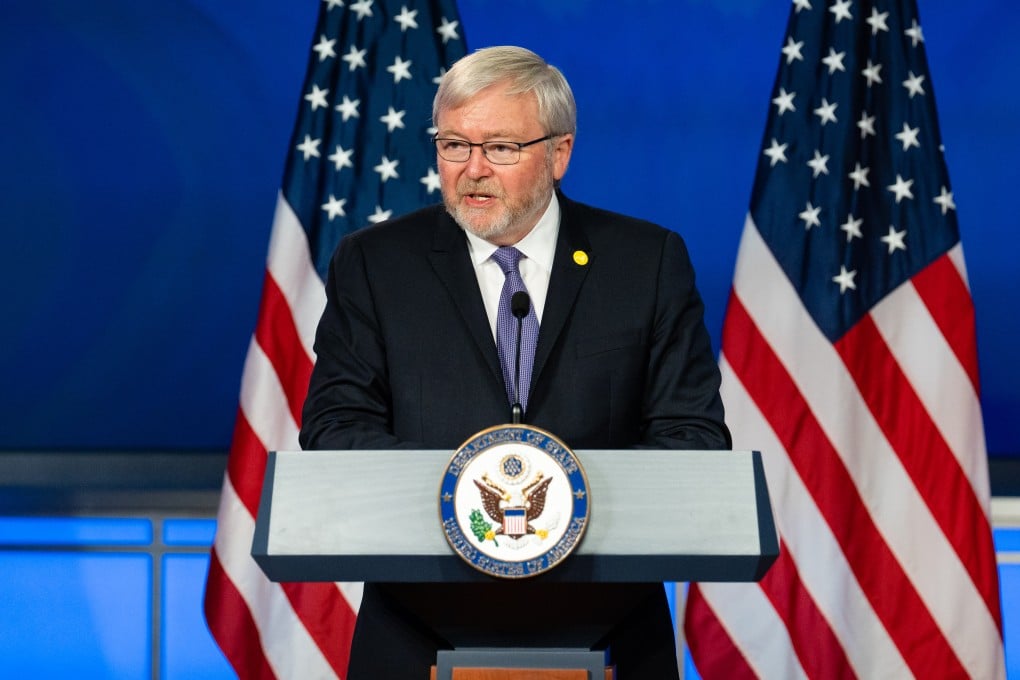Advertisement
China-Australia relations: ex-Australian PM Kevin Rudd tells West to offer alternatives to Pacific islands, not ‘lectures’ about their ties with Beijing
- Some Western nations have criticised the Solomon Islands-China pact, claiming the move will lead to Beijing bolstering its military presence in the region
- Kevin Rudd said the West must offer better and more development-friendly proposals to Pacific Island nations, rather than a ‘stern moral lecture’
Reading Time:2 minutes
Why you can trust SCMP
53

Western powers should avoid delivering “stern moral lectures” to Pacific island states about their deepening ties with China and instead offer alternative development proposals, the former Australian prime minister Kevin Rudd has said.
The comments by Rudd, the ex-leader of the Australian Labor Party that swept to power in last weekend’s election, comes amid duelling visits by the new Australian foreign minister Penny Wong and her Chinese counterpart Wang Yi to the Pacific region this week.
The visits follow the Solomon Islands’ recent decision to sign a security pact with China, a move the West believes is a precursor to Beijing bolstering its military presence in the region. China has denied having any such motivations.
Advertisement
“The critical thing for the island states is to ensure that their basic national interests are being properly attended to by the large powers around the Pacific, Rudd said in a dialogue session at Nikkei’s Future of Asia conference.
He said these micronations – with “micro-budgets” crucially required development assistance, policy arrangements to protect their extensive fisheries resources and protection of their territorial integrity as they come under threat from rising sea levels.
Advertisement
Advertisement
Select Voice
Select Speed
1.00x
